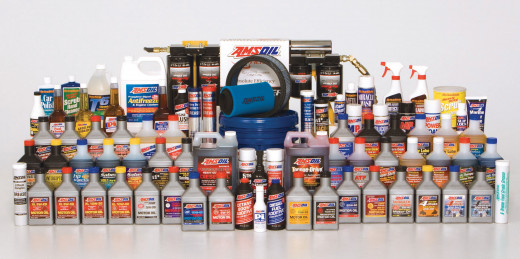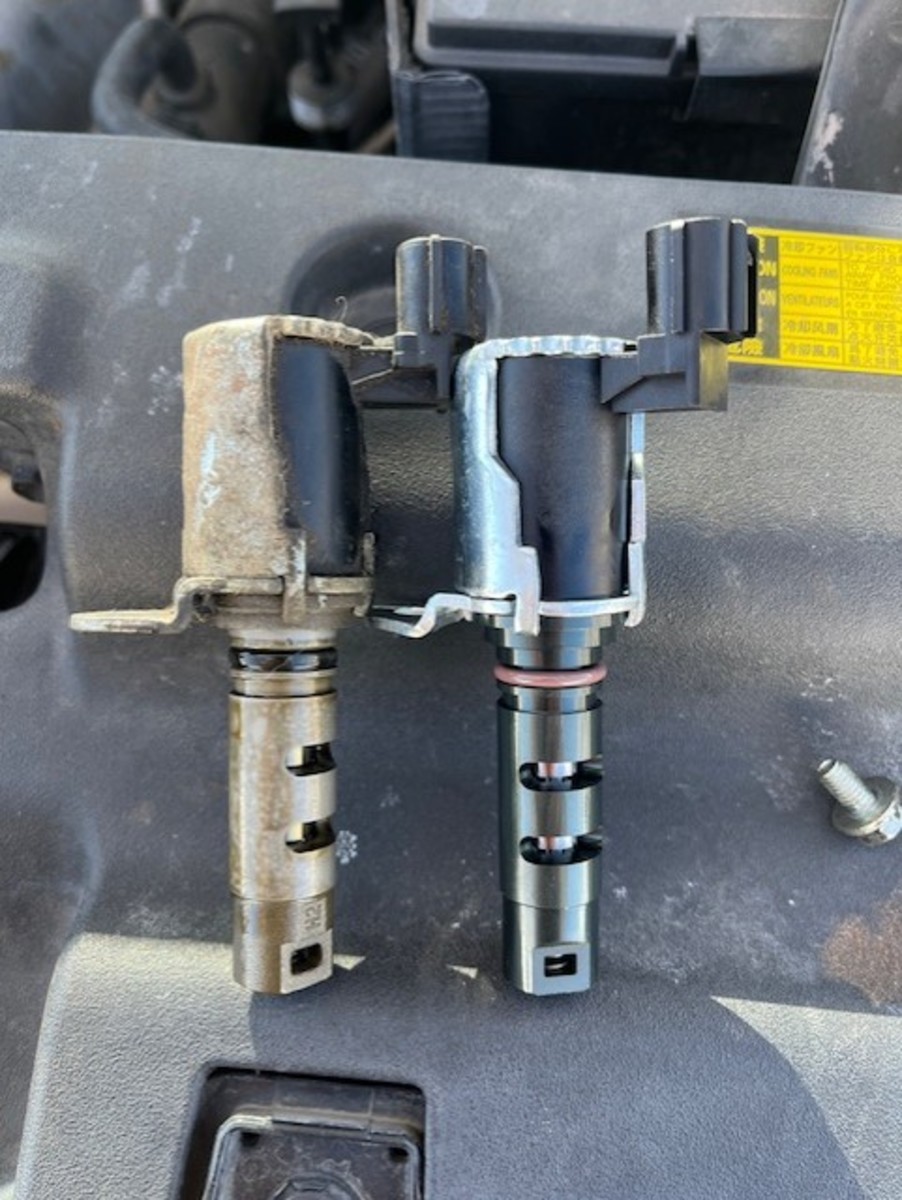Synthetic Oil and Lubricants
Experts Predict Continued Growth For Synthetics
For the past few years we’ve read how the lubricants market has been “flat.” Pundits have noted that though not going away any time soon, oil is certainly not a stellar growth sector in the economy. And yet, if you look back at the historical record there has been a segment of the lube industry which has been quietly growing for a long time. We’re speaking of the synthetic lubricants sector, and a new report by the Freedonia Group indicates that U.S. demand for synthetic motor oil is expected to rise more than 7 percent a year over the next three years. These robust numbers might be worth paying attention to.
An April 7 article by George Gill in his Lube Report* from Lubes ‘N Greases highlights the details of Freedonia’s research findings. The opening salvo is a brief summary of the numbers. He follows with this:
“Engine oils and hydraulic and transmission fluids will experience the fastest gains as synthetics finally begin to penetrate the conservative medium and heavy duty truck market,” Cleveland-based Freedonia suggests, “and as increasing new vehicle lubricant performance requirements and growing consumer acceptance further expand synthetics’ share of the light vehicle market.”
Driving Forces
Ned Zimmerman cites four primary drivers for the growth in synthetic lube sales. First, the major brands have stepped up their marketing efforts in this direction. A lot more money is now being spent to make motorists aware of these new lube technologies.
Second, the trend toward OEMs using synthetics in many makes and models will drive demand. GM and others recognize the role synthetics play in helping vehicles attain increasingly stringent Corporate Average Fuel Economy (CAFE) requirements. This, too, is helping consumers become more aware of the benefits of synthetics.
Third, Zimmerman noted that while awareness is already strong in the do-it-yourself market, near-term economic pressures will likely drive many others to evaluate and choose synthetics in an effort to reduce maintenance costs.
Fourth, the consumers who make up the bulk of the do-it-for-me market are the kind of people more susceptible to mass marketing. (See point one.)
In short, we’re seeing a convergence of driving forces that will result in the continued growth and mainstreaming of synthetic motor oils and drivetrain fluids. Is this a good thing? Absolutely.
The Trend Is Your Friend
Wall Street has plenty of pithy maxims for investors that sum up pearls of wisdom learned from the school of hard knocks. For example, when you miss a good investment opportunity, there’s consolation in knowing “another bus will be along in fifteen minutes.” With regard to buying stocks Peter Lynch said, “Spend at least as much time researching a stock as you would choosing a refrigerator.” And this Sioux proverb is also a good admonition: “When you realize that you are riding a dead horse the best strategy is to dismount.”
So, the saying that immediately jumps into my mind when I read the Freedonia report is this: “The trend is your friend.”
In sailing, there’s nothing like the feeling of the wind at your back and clear horizons ahead, the sail taut, catching the wind. The wind at your back makes everything easier. Catch the wind. The trend is your friend.
I recently picked up a hitchhiker on a rural highway. He’d been walking near fifteen miles when I came along. Heavy laden with a rather hefty set of baggage, he said he hadn’t minded most of it until this last portion where he came up a rise and was now walking into a headwind. It had been a beautiful day, but it’s tough to walk into the wind. And we all know what happens when you spit into the wind.
I’ve never been a surfer (other than body surfing in Puerto Rico) but I understand the principle. Surfers watch the incoming waves with an eye to the big ones that will give the biggest thrill. They paddle with the trend and position themselves to make a run. When it all comes together, the rush and roar of riding the wave gives an incomparable thrill. The trend is the surfer’s friend. Successful surfers go with the flow, not against it.
Summing Up
It’s a simple message that oil change professionals can profit from. The trend is toward more sophisticated technologies, and high tech lubricants will be increasingly required in the future, as well as desired. Promoting a properly priced premium synthetic solution is the primary way to benefit from this trend.

I am a T-1 Certified Independent AMSOIL Dealer - Shop and buy AMSOIL Synthetic Oil and Lubricants Online or by Phone
- Independent AMSOIL Dealer | Nationwide Service and Shipping
I am an Independent AMSOIL Dealer providing nationwide sales, service and shipping. Shop and buy AMSOIL synthetic motor oil, synthetic motorcycle oil, synthetic diesel oils, gear lubes, synthetic greases, racing oil, 4-stroke, 2-stroke and much more.


A Deeper Look At Motor Oil Consumption
Have you ever met people who have simplistic answers to complex questions and never want to take time to think a little more deeply about the subject? To be honest with you, I think we all fit that description from time to time. Many issues are so complicated that we just don’t have the time to really study them in depth. So we opt out for the simple answer. For example, let’s talk about motor oil consumption.
Ever had a car where you had to top off your oil now and then? Who hasn’t? In my case, I always assumed that this was due to the oil’s volatility. That is, when the engine was hot, the oil’s lighter molecules would vaporize.
I once attended two days of training at a quick lube (part of a major oil company chain) wherein they showed how their conventional oil lost up to 30 percent and their synthetic only 12 percent in a volatility test. It sank home the message I’d already adopted, that synthetics were more resistant to oil loss than conventional oils. While this may be true to a large extent it is not the end of the discussion.
I saw a Technical Service Bulletin called The Reasons for Motor Oil Consumption, and seven pages later I could no longer stand on my simple one sentence answer to the problem. The problem of abnormal oil usage is far more complicated and, in fact, most of the causes are mechanical, not lubricant related at all.
Here are just the first of 40 explanations for oil consumption: External Oil Leaks.
“Some of the many points where external oil leaks may occur include, oil lines, crankcase drain plug, oil pan gasket, valve cover gaskets, oil pump gasket, fuel pump gasket, timing case cover and camshaft bearing seal. No possible source of leakage should be neglected because even a very small leak can cause extremely high oil consumption. For example, it has been estimated that a leak of one drop of oil every 20 feet is approximately equal to a loss of one quart of oil every 100 miles. One way to check for external leaks is to road test the vehicle with a large piece of light-colored cloth tied under the engine. Oil on the cloth will indicate a leak which should be traced to its source.”
But the list goes on. The problem may be front or rear main bearing seals, worn or damaged main bearings, worn or damaged connecting rod bearings, worn or damaged camshaft bearings, worn crankshaft journals, distorted cylinders, honing abrasive, worn ring grooves, cracked or broken ring lands, problems with the wrist pins, clogged oil passages, or even unequal tightening of various bolts.
Item 20 on the list had to do with the radiator, and I initially thought this was just a bit much. Until I read the explanation. A defective cooling system can cause overheating of the engine which may result in the development of localized hot spots in some of the cylinders which can lead to scuffing and scoring of cylinders, pistons and rings resulting in high oil consumption.
And the list goes on. Dirty oil, too much oil in the crankcase, worn or broken piston rings, improper valve timing, incorrect oil pressure, piston slap, internal gasket intake breach, spark knock, aftermarket performance chips and modifications, lugging engines, inappropriate operation of overdrive, leaking turbocharger seals, restricted air intakes and fuel dilution can all contribute in various ways to oil consumption.
In short, few things are as simple as they might initially appear. When all is said and done, however, even though there may be multiple reasons for oil loss, in a mechanically sound engine it boils down to one: the volatility issue. In this, synthetic motor oils make a difference. For this reason, if your customers’ vehicles are mechanically sound they should be using synthetics to reduce their oil consumption. Benefits include reduced oil usage, reduced emissions and improved fuel economy.
Here’s another simple answer that is more complicated than it looks, the cost of synthetics. People who say synthetic motor oils are too expensive have often never gone into depth analyzing the real life cycle costs of a premium synthetic motor oil versus conventional petroleum. The initial cost appears quite a bit higher, but the life cycle cost is the true measure. The annual cost of a premium extended drain synthetic is comparable to or even less than conventional oils these days, and the benefits too numerous for this short summation. When your customer is driving a vehicle with a mechanically sound engine, I always recommend a synthetic solution.
FAQ: About Synthetics
If you spend any amount of time on the internet you will sooner or later come across a page called FAQ, which is shorthand for Frequently Asked Questions. The purpose of the FAQ page is to relieve tech support people from having to answer the same questions over and over again, and to make it easy for customers to find answers on their own.
Here are some of the typical questions we’ve received over the years. If you still have more specific questions, I will be happy to answer anything you submit. My email address is listed at the end of this column.
Q: What is the difference between synthetic motor oil and conventional petroleum oil?
A: Synthetic lubricants are composed of select base stocks and special purpose additives chemically assembled with planned, predictable properties. Whereas petroleum oils are pumped from the earth and refined, synthetics are custom-designed in the laboratory, with each phase of their molecular construction programmed to produce, in effect, the ideal lubricant.
Q: What are some of the common misconceptions about synthetic motor oil?
A: It is interesting how some of these myths hang around for so many years. Some of the most common were that synthetics are not compatible with seals (properly formulated synthetics actually extend seal life), that synthetics are too thin to stay in the engine, and that synthetics cause cars to use more oil. Of course there are misconceptions going the other direction, too. Some people think synthetic oil is a super oil that will last forever. It is true that synthetic oils are more impervious to oxidation, but the additives in synthetic formulations do get used up over time. A motor oil’s formulation includes the performance of both the base stock and additive package.
Q: If a car is factory fill conventional petroleum, will switching to synthetic void the warranty?
A: No, it will not. Vehicle manufacturers recommend using motor oils that meet certain viscosity grades and American Petroleum Institute service requirements. Whether the motor oil is petroleum-based or synthetic will not affect warranty coverage. The manufacturer is required to cover all equipment failures it would normally cover as long as the oil was not the cause of the failure.
Q: Is there any truth to the notion that cars should be running petroleum oil during the break in period before switching to synthetic?
A: A premium synthetic motor oil can be used during break-in without any trouble. In fact, dozens of vehicle models come factory-filled with synthetic oil now. Rebuilt engines may still require break in oils that don’t prevent wear as well and will allow rings to seat, but not factory supplied engines.
Since a majority of new vehicles come filled with petroleum oil, it only makes good sense to change to synthetic at the first scheduled oil change interval. New engine components generate high levels of wear metals and can contain contaminants from assembly. By allowing the engine to operate with the petroleum oil until the first oil/filter change interval, the wear metals and contaminants are removed prior to installing the premium product.
Q: Will switching from petroleum to synthetic result in a plugged oil filter when the sludge is cleaned out by the synthetic?
A: This is a common fear, however, switching from petroleum oil to premium synthetics in routinely maintained vehicles will not cause clogged oil filters or passageways, regardless of mileage. Sludge, which is caused by poor quality oil and neglected maintenance practices, would have to be present in significant amounts to plug oil filters and passageways. If there is an excessive amount of sludge present in an engine, it is just a matter of time before oil filters and passageways clog, regardless of the oil you choose.
Q: Will switching to synthetics cause my engine to leak oil?
A: In mechanically sound engines, there’s no risk of synthetic motor oil leaking. In fact, premium synthetic oils are fully compatible with modern seal materials, keeping them pliable to prevent leakage. New engines are built to much tighter tolerances now than they were in the 70’s and 80’s when that notion was promulgated, and is not true anymore.
Q: Is there a recommended procedure for switching to synthetic motor oils?
A: As long as the vehicle has been properly maintained and the vehicle is mechanically sound, there are no special requirements. Some oil manufacturers, however, may indicate specific drain intervals that should be followed for vehicles that have over 100,000 miles and are first time users of their products.
Q: If someone switches to synthetic can they switch back to conventional oil?
A: Yes, they can, but why would anyone want to?










